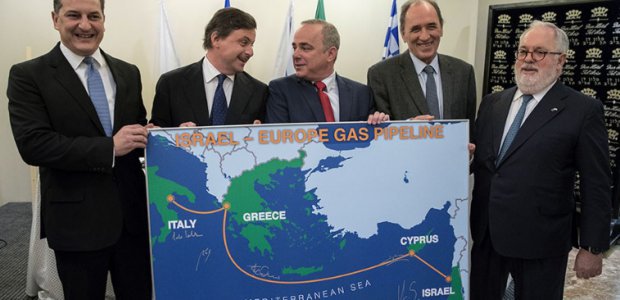Greece’s energy minister Giorgos Stathakis is in Nicosia today for a four-way Greek, Cypriot, Israeli and Italian meeting, along with EU participation, at which a Memorandum of Understanding for the East Med natural gas pipeline project is expected to be signed.
The prospective pipeline project is planned to carry southeast Mediterranean natural gas deposits along a route stretching from Israel to Europe.
Rejuvenated interest expressed by Italian officials in East Med has bolstered the ambitious project’s development prospects and prompted European Commission support for the project.
Preliminary studies co-financed by the EU have determined the project is technically feasible, financially sustainable and commercially competitive.
Its annual transmission capacity is planned to measure 10 billion cubic meters. The pipeline will be designed to enable a capacity increase to 16 billion cubic meters if needed. The project’s cost is estimated at 6 billion euros. Studies conducted to date indicate the project could be completed by 2025.
Following up on today’s MoU, technical teams representing Greece, Cyprus, Israel and Italy are scheduled to meet on December 21 to sign a finalized agreement.
Then, the leaders of Greece, Cyprus and Israel plan to stage a three-way meeting in Nicosia on January 8.
An article published by the Jerusalem Post to coincide with today’s four-way meeting presented the Greek-Cypriot-Israeli energy collaboration as part of a “series strategic interests” as well as an effort by the three countries to “restrict the Russia-Iran-Hezbollah axis in the region.”
This description has raised eyebrows and further complicates any attempt to determine hydrocarbon trends in the southeast Mediterranean, highly significant both geopolitically and geoeconomically.





